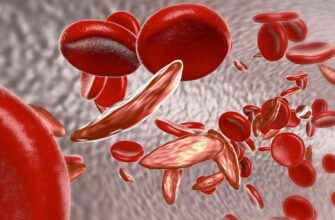Carotid artery disease occurs when the carotid arteries, which supply blood to the brain, become narrowed or blocked. This can lead to serious health complications, such as stroke or heart attack. Here’s what you need to know about this condition:
What Causes Carotid Artery Disease?
Several factors can contribute to the development of carotid artery disease, including high blood pressure, high cholesterol, smoking, and diabetes. Age, family history, and a sedentary lifestyle may also play a role.
What Are the Symptoms of Carotid Artery Disease?
Many people with carotid artery disease do not experience any symptoms, but some may have warning signs, such as sudden weakness or numbness on one side of the body, trouble speaking, dizziness, or vision changes.
How Is Carotid Artery Disease Diagnosed?
Doctors may use several tests to diagnose carotid artery disease, including ultrasound, magnetic resonance angiography (MRA), and computed tomography angiography (CTA). These tests can help identify blockages or narrowing in the carotid arteries.
What Are the Treatment Options for Carotid Artery Disease?
Treatment for carotid artery disease may involve lifestyle changes, such as quitting smoking, eating a healthy diet, and exercising regularly. Medications may also be prescribed to lower blood pressure or cholesterol. In severe cases, surgery or endovascular procedures may be needed to remove blockages in the carotid arteries.
How Can Carotid Artery Disease Be Prevented?
Making healthy lifestyle choices can help prevent carotid artery disease. This includes maintaining a healthy weight, eating a balanced diet, exercising regularly, not smoking, and managing any underlying medical conditions, such as high blood pressure or diabetes.
What Are the Complications of Carotid Artery Disease?
If left untreated, carotid artery disease can lead to serious complications, such as stroke, transient ischemic attack (TIA), or heart attack. These conditions can cause permanent damage to the brain or heart and may even be life-threatening.
What Are the Risk Factors for Carotid Artery Disease?
Several factors can increase the risk of developing carotid artery disease, including age, family history, high blood pressure, high cholesterol, smoking, diabetes, obesity, and a sedentary lifestyle.
Can Carotid Artery Disease Be Cured?
While there is no cure for carotid artery disease, it can be managed with lifestyle changes and medical treatments. With proper management, many people with carotid artery disease are able to lead healthy, active lives.
What Is the Prognosis for Carotid Artery Disease?
The prognosis for carotid artery disease depends on several factors, such as the severity of the condition, the age and overall health of the individual, and whether or not they have any underlying medical conditions. With proper treatment and management, the prognosis can be good.
What Are the Long-Term Effects of Carotid Artery Disease?
Carotid artery disease can have long-term effects on an individual’s health, particularly if left untreated. Complications such as stroke or heart attack can cause permanent damage to the brain or heart, which may affect a person’s ability to perform daily tasks or lead an active lifestyle.
When Should I See a Doctor About Carotid Artery Disease?
If you have any risk factors for carotid artery disease, such as high blood pressure, high cholesterol, or a family history of the condition, you should talk to your doctor about ways to prevent it. If you experience any symptoms of carotid artery disease, such as sudden weakness or numbness on one side of the body, trouble speaking, dizziness, or vision changes, you should seek medical attention immediately.
How Can I Manage Carotid Artery Disease?
Managing carotid artery disease involves making healthy lifestyle choices, such as eating a balanced diet, exercising regularly, not smoking, and managing any underlying medical conditions. It may also involve taking medications, such as blood pressure or cholesterol-lowering drugs. Your doctor may also recommend surgical or endovascular procedures to remove blockages in the carotid arteries.
Can Carotid Artery Disease Be Fatal?
If left untreated, carotid artery disease can lead to serious complications, such as stroke or heart attack, which can be life-threatening. However, with proper management and treatment, the risk of these complications can be greatly reduced.
In conclusion, carotid artery disease is a serious condition that can lead to life-threatening complications. However, it can be managed with lifestyle changes, medications, and surgical or endovascular procedures. If you have any risk factors for carotid artery disease or experience any symptoms, it is important to seek medical attention immediately to prevent serious complications.











